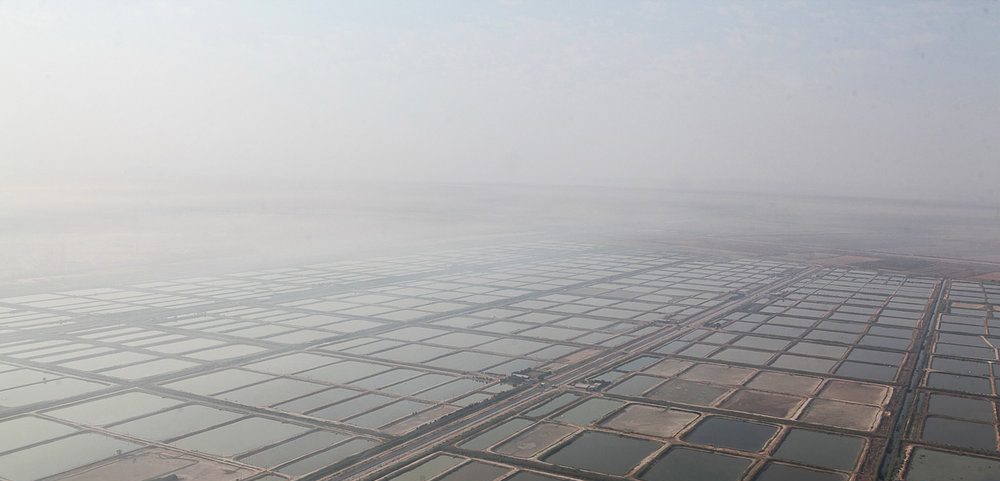The huge wildfire in Hour Al-Azim wetland in the southwest of Iran that shows no sign of abating and keeps choking the residents of Khuzestan Province with its dense fumes has pressed the chief of the Department of Environment to make a trip to the region in person to observe the conditions.
Isa Kalantari said after an aerial visit to the wetland by helicopter that the water-dropping choppers might be unable to extinguish the fire due to its size, and ground operations are essential to controlling the inferno.
"To approach the fire by land, we need to reach agreements with the Iraqi side," he was quoted as saying by IRNA.
The fire in Hour al-Azim has been burning for close to a month largely in the Iraqi part of the wetland. The blaze has been contained within Iran's borders, though already scorching around 2,000 hectares, but it continues to burn in Iraq sending clouds of smoke toward Iranian territories.
It earlier took Iran about 10 days to obtain a permit from Iraqi authorities to send helitankers and water-dropping aircraft to the region which eventually managed to put it out, but it soon reignited.
"It is now burning again and there is a possibility that it was deliberate," Kalantari said.
According to Ahmadreza Lahijanzadeh, head of the provincial DOE office, choppers were dispatched once again three days ago and have flown and sprinkled water over the blaze nearly 65 times.
However, "due to their low capacity for carrying water, helicopters are not able to extinguish the fire on their own; for this reason, an Ilyushin aircraft will be sent to the area again on Monday," he said, Mehr News Agency reported.
The Russian Ilyushin aircraft can carry four tons of water at a time.
The official said the approach by land is being reviewed as an alternative method, although the area is swampy and dotted with landmines.
Iraq's Unhelpful Approach
Kiumars Hajizadeh, head of the crisis management office at Khuzestan's Governorate, blamed Iraq for its refusal to cooperate.
"Iraq is required to fulfill its commitments to release water into Hour al-Azim based on international conventions. Despite our battle with drought, we have irrigated the wetland, so Iraq should cooperate as well," he said.
According to IRNA's report, Hour al-Azim has received no water form Karkheh and Tigris rivers (its feeding sources) this summer.
Two-thirds of the wetland is within Iraq's borders and one third lies on Iranian lands.
Reportedly, Iraq's ministry of water resources has appealed to international organizations for help to rein in the fire in the marshlands, locally called Hawizeh, which is a UNESCO World Heritage site.
Khuzestan Suffering the Brunt
Amid all struggles to control the incident, the residents of Khuzestan are grappling with the side effects of the conflagration.
The smoke has penetrated closed spaces causing breathing difficulties, terrible coughs and stinging eyes in several counties.
"The smoke has permeated Bostan, Rafi'e, Hamidiyeh and Ahvaz and much denser in Hoveyzeh and Sousangerd," Shahyar Mirkheshti, head of Khuzestan's emergency service, said.
Pollution was so thick in Hoveyzeh that the county's crisis management department announced the closure of all offices on Sunday.
The medical emergency center has called on people in Hoveyzeh, Sousangerd and Ahvaz to avoid unnecessary outdoor activities or use masks if they do.
According to Mirkheshti, respiratory medicines are abundantly available in the province and medical centers are all on alert.


